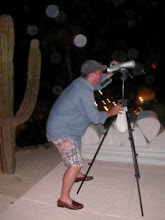Pham Binh Minh, whose father fought to force the U.S. out of Vietnam, is working fervently to elevate the interest and involvement of his country’s former enemy.
Vietnam wants a U.S. presence for economic reasons and as a balance to China, the regional superpower. Minh is the new foreign minister; his father was part of Ho Chi Minh’s Communist regime during the bitter conflict of the 1960s and 1970s; later, he was foreign minister when Vietnam clashed with China.
“One cannot imagine how fast the relationship between the United States and Vietnam has developed,” Minh, 52, says in an interview in Hanoi. “After 16 years of normalization, we’ve come to the stage where we’ve developed the relationship in nearly all aspects.”
While the U.S. hasn’t fully erased the pain of that war, the Vietnamese, who suffered far more, embrace their old adversary. Economic ties between the nations are growing; the U.S. is the largest importer of Vietnamese goods. There are regular military contacts, and this month the two countries signed the first defense pact regarding military medicine.
Last year, Vietnamese officers observed a U.S. military operation aboard a Navy destroyer, the USS John S. McCain, named after two admirals, the father and grandfather of Republican Senator John McCain of Arizona, who was a prisoner of war in Hanoi for six years.
skip to main |
skip to sidebar

Read
About Me

- Marc A. Ross
- Washington, DC, United States
- Marc has an extensive background in business development for companies as well as directing the advocacy operations, communications efforts, fundraising programs and public affairs for nonprofits, corporations and political campaigns for the highest offices in the United States and the United Kingdom. Marc is available for consulting, workshops, panels, interviews, training sessions, advice, commentary and speaking on all things Advocacy 2.0. Marc can be reached via email by sending a note to marc (at) 2ndsix.com or by twitter at @microadvocacy.
My Blog List
Blog Archive
-
▼
2011
(23)
-
▼
August
(20)
- China Daily: Profits of China's industrial busines...
- China Daily: Terra Firma lands in China
- China Daily: More cities get housing purchase limits
- WSJ – China Realtime Report: China’s hardliners ta...
- WSJ – China Realtime Report: Latest threat to Chin...
- DealBook:Canada Halts Trading in Sino-Forest of China
- Bloomberg: China to lock up more cash to tighten l...
- The Economist: Economist: China’s military power –...
- The Economist: Mexico’s economy - The cartel problem
- Caixin: Ample reasons for another yuan growth spur
- The Diplomat's New Leader Forum: Understanding China
- AP: China blog site shuts accounts in ‘rumor’ crac...
- AP: China, France agree to discuss yuan flexibility
- Politico: A political junkie's guide to Cheney's m...
- China's food chain lures private equity
- FT: Apple overtakes Lenovo in China sales
- The Hill: Lawmakers criticize defense cuts after r...
- Al Hunt: Changing Vietnam yearns for closer US emb...
- Xinhua: Chinese gov't strongly rebuffs U.S. milita...
- Bloomberg: GM keeps top China overseas sales rank
-
▼
August
(20)